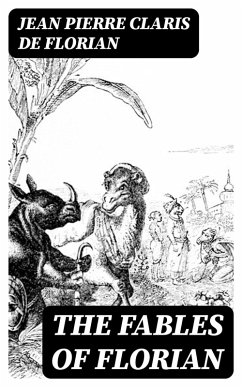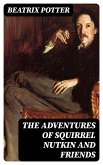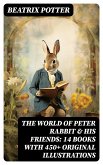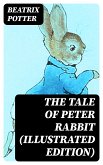The "Fables of Florian" by Jean Pierre Claris de Florian is a remarkable collection that reflects the essence of 18th-century French literature, blending moral instruction with enchanting storytelling. The fables, written in a graceful and often whimsical style, draw inspiration from Aesop and La Fontaine, yet they carry a distinctive charm that captures the elegance of Florian's prose. Each tale is suffused with wit and invites readers to consider the complexities of human behavior and social interaction, underscored by a subtle critique of the social mores of his time, making them relevant even today. Jean Pierre Claris de Florian, a prominent figure in the French literary scene, was deeply influenced by the Enlightenment ideals of reason, empathy, and moral clarity. Growing up in a milieu rich in cultural and literary traditions, Florian honed his storytelling skills by engaging with pastoral themes and exploring the relationship between nature and humanity. His experience as a diplomat and his keen observation of society undoubtedly informed his nuanced portrayal of characters and their moral dilemmas in this collection. I recommend "The Fables of Florian" to readers seeking a blend of moral reflection and aesthetic pleasure. This collection not only serves as a significant literary artifact but also invites modern audiences to reflect on timeless truths about human nature and ethical conduct. Whether for educational purposes or personal enjoyment, Florian's fables are an essential contribution to the canon of classical literature.
Dieser Download kann aus rechtlichen Gründen nur mit Rechnungsadresse in A, B, BG, CY, CZ, D, DK, EW, E, FIN, F, GR, H, IRL, I, LT, L, LR, M, NL, PL, P, R, S, SLO, SK ausgeliefert werden.









